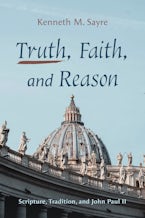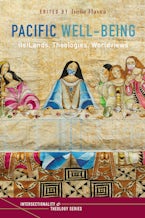John Paul II's Faith and Reason was written against a background of Catholic scholarship focusing notably on the New Testament, St. Augustine's Confessions, St. Thomas's De Veritate, and the encyclicals of various pre-Vatican II popes. A detailed, textually based critique of these early sources reveals inconsistencies and conceptual errors that are shown to carry over into Faith and Reason. John Paul II's treatment of reason, in particular, turns out to be aberrant to the point of incoherence. It is inconceivable how this reason could join with faith in a way that lifts the human spirit to a contemplation of truth, as stated in the Preface of the encyclical. There is another sense of reason, however, which demonstrably is capable of cooperating with faith to achieve this effect. This reason is free from the fetters of Neo-Scholasticism that keep John Paul II's reason grounded. The present study joins forces with the encyclical with a detailed example of this other sense of reason in action. In this example, new truths come to light regarding the complex relation between the first and the second great commandments.
Kenneth M. Sayre is Professor of Philosophy emeritus at the University of Notre Dame. He is the author of twenty books, with primary specialty in Plato.
“Kenneth Sayre is one of the widest-ranging minds in American philosophy and also a subtle knower of the philosophical tradition, as his path-breaking books on Plato demonstrate. This new work somehow offers a fulfillment of his earlier thought by addressing the ultimate questions of religion. Both educated Christians, who deeply care about religious issues, and professional philosophers of religion will benefit from this book, which may well be the philosophical testament of the nonagenarian philosopher.”
—Vittorio Hösle, University of Notre Dame
“This critical examination of St. John Paul II’s great encyclical on faith and reason by a prominent philosopher is written for both philosophers and theologians. Theologically informed readers may question the interpretations of Scripture, of Augustine and Aquinas, and of the encyclical itself, but this clear and readable study provides an occasion for them to show how their conceptions of truth, faith, and reason avoid the problems Sayre points out.”
—Gerald McKenny, University of Notre Dame
“Using philosophical methods, Sayre traces the evolution of three related concepts at the core of Christian theology: truth, faith, and reason. His masterful analysis is a major contribution to the history of ideas, as well as a practical demonstration of how philosophy and theology can work in fruitful dialectic—provided we insist on precise thinking about the dynamic between reason and faith.”
—Vern R. Walker, Hofstra University











